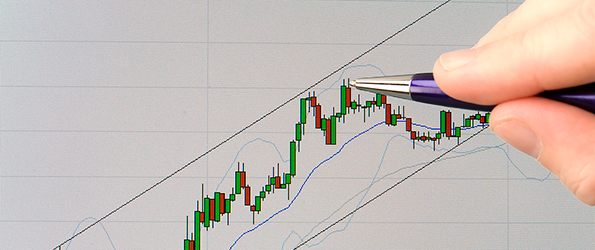How To Master Your Trading: Indicators

“Stocks are bought on expectations, not facts.” — Gerald M. Loeb
Life is a simple walk, opportunities cross your road in the most unexpected ways when you less expect it. So, when that happens you need to act, because it may not last long. Some of the multimillionaires say that they owed their success in life by enjoying the pleasures of the moment without concern for the future. When investing/trading, it is really important to know that history repeats itself, but the manifestation is usually different, ignore voices, and trust your own judgment.
“The time of maximum pessimism is the best time to buy, and the time of maximum optimism is the best time to sell.” — John Templeton
As we decide to start trading it is important to ask ourselves: what does it take to become a successful trader? Trading tactics, psychology, money management and record keeping are four factors that determine the success of a trader. If you keep records, you will learn from your experiences. Bid and ask are two main parts of trading. A bid is what people are offering to pay, an ask is what sellers are demanding in order to sell. Commissions are part of every trade, it is something you pay for entering and exiting trades. This is a fair reason, why you should be looking for brokers that charge low commissions, because you are in trading for a long time. If you are already part of trading, you should probably know about slippage. If commissions are some sort of a barrier, to success, than slippage is way much more than that. A good trader's goal is not to make money, it is to trade well. If he can do that the money will follow. If a trade requires putting more than 2% of your account at risk, don't do it, no matter how much you want it. It is good to know where you are going, otherwise you'll end up somewhere you didn't think you'll ever be. A successful trader is realistic, he sees what is really happening in the markets, analyses it without trying to find just the positive parts even when there is none. He can simply not afford the illusions. Trades must be based on clearly defined rules, you have to manage your money in a way that losses can not get you out of the game. If that happens, and you don't succeed as expected in a trade, you should not start blaming external factors, you should focus within yourself and figure it out, what went wrong, so that would be a lesson for the next trade. An important role on your success or failure as a trader, have emotions. If you allow your emotions to stand on the way of your trading, you have lost the battle. Usually a trader who loses money, doesn't know why that happens, this way they try to change to new trading strategies or look for tips from different gurus. In the worst scenario, a loser will not accept that, until he hits the rock bottom. You hit bottom when you lose money that you can not afford to lose. Fortunately, some traders learn a lesson from that and come back with the process of change and growth.
There are a lot of different indicators that would help you to be a successful trader. We should definitely mention the quality of the stock/currency that you are trading. Obviously, one of the most important things traders consider when trading is price. What they should know is, that there are other things that are important too, such as volume of transactions and time. Volume refers to the activity of traders and investors. One sells the other buys. Changes in volume show that bulls and bears react to price swings. You can analyse the volume by the number of stocks/currency traded. When the volume falls, shows that the supply of losers is running low and a trend is ready to reverse. A “high volume” is at least 25% above its average for the past two weeks, while “low volume” is at least 25% below average. A thinking trader is aware of time, he pays attention to time. The market moves at a much slower speed. If, we get in the market too early we can end up losing money in trends that are too slow to turn. In this case you should be aware that the market time is slower than your own. Not being greedy and trade small size will pay you off.
Each trading pattern is a fight between bulls who make money when prices rise, and bears who profit when they fall. If bulls are stronger you should buy and hold, on the other hand if bears are stronger you should sell and sell short. But, if they both are equal in strength, what a good trader does, is stay aside and enters a trade when he is reasonably sure, which one will win. A good trader should learn how to act calm and responsibly. Once you understand that you can not control the market, but you can only control yourself, that's when your trading will become a bit easier.
Remember:
• Go into trading for the long term
• Do researches as much as you can
• Don't rush, don't get greedy
• Analyse the markets
• Start a money management plan
• Discipline yourself
• Acquire knowledge
The majority of people think that joining the crowd is the best to do, while a successful trader must think independently, by analysing the market and make trading decision based on those analysis. While trying to make the best of their trading’s, some people get involved in the crowd's actions and feelings, leading themselves to lose money, as they digress from their plans. One of the negative things when joining crowds is that people, become more susceptible to act on instincts. Your trading strategies should be simple, you don't have to complicate things. Stress and threat is what makes traders to join crowds. If you can handle stress you don't need to join crowds, instead you can base your trades on a plan, a written one. If you don't have a plan you are prone to fail, because you trade without a clue of what you are doing. You can succeed as a trader only when you think and act individually. Impulsivity and emotions are not good for a successful trader
Based on the purpose people start trading, we can classify traders in three groups:
• Long-term trading: the expected duration of a position is measured in months, sometimes years
• Swing trading: the expected duration of a trade is measured in days, sometimes weeks, it gives you time to think
• Day trading: the expected duration of a trade is measured in minutes, hours, demands instant reactions
Every serious trader has rules regarding when to enter and exit a trade. Before entering a trade it is really helpful for you, if you write three numbers: the entry, the target and the stop. What you should know as a trader, when you trade currencies, is that you either need to take a very long-term view and ignore daily fluctuations, or day-trade and avoid overnight positions. There is nothing, not a system or rules that can guarantee you to succeed all the time. This is why it's important to have risk control as an essential part of every trader. The incapacity of managing losses is one of the worst things a trader can have.
One of the most common mistakes new traders usually do is that, they get to excited. OK, we're not saying that you should not be excited but, that excitement can lead you to wrong decisions. Trading without stops may lead you to unlimited losses, that's why you have to know your maximum level of risk. We all make mistakes, but if you reflect on your past mistakes you'll be able not to repeat them again. There are a lot of factors that affect your trading, that's why a psychological self-test to see whether you are in a mood or not to start trading, would be really helpful every time before you decide to trade. Memory helps us learn from our successes and failures, that is the reason why keeping a diary of your trades will help you grow and become a better trader.
Trends:

We call it a trend, when prices keep rising or falling over a period of time. Greed and fear between buyers and sellers, is what moves prices up. When a trend is up bulls buy because they expect prices to go up even higher. An uptrend is what makes bears wanting to sell only at a higher price. When buyers feel stronger than sellers, the market rises slowly, but when they feel much stronger than sellers the market rises fast. The reason of market falling is the fear among bulls and greed among bears. When the trend is down bears feel confident, add to short positions, this is why downtrend continues. On the other hand during a downtrend bulls lose money, some of them also switch sides to join bears. Trading is not about forecasting the future, it is about extracting information from the market and find out whether bulls or bears are in control. In bull markets, prices often make their low on Monday or Tuesday, and high on Thursday or Friday. In bear markets the high for the week is often set on Monday or Tuesday, with a new low toward the end of the week.
Understanding support and resistance is really important in order for you to understand price trends.
• Support is a price level where buying is strong enough to interrupt or reverse a downtrend. Support is where buyers buy with greater intensity than sellers sell.
• Resistance is a price level where selling is strong enough to interrupt or reverse an uptrend. Resistance is where sellers sell with greater intensity than buyers buy.
• Support and resistance are more important on long-term charts than on short-term charts.
As we are about to finish this article with the hope that this will help you in your future tradings you should know that trading is not very hard, you just have to learn to reduce stress of trading by keeping in mind some of essential points: when you first start trading focus on trading small sizes, do not count money while trading, use the 2% Rule, keep records of all your tradings and also write down your plans.
I would like to close it with a saying from Oliver Tischendorf: The difference between those who succeed in trading and those who fail is not the system they play, but how well they play it. Your mind is a powerful thing, don’t let it beat you in the market. Keep that in mind and enjoy trading.
Congratulations @anapodrimaj! You received a personal award!
Click here to view your Board of Honor
Do not miss the last post from @steemitboard:
Congratulations @anapodrimaj! You received a personal award!
You can view your badges on your Steem Board and compare to others on the Steem Ranking
Vote for @Steemitboard as a witness to get one more award and increased upvotes!